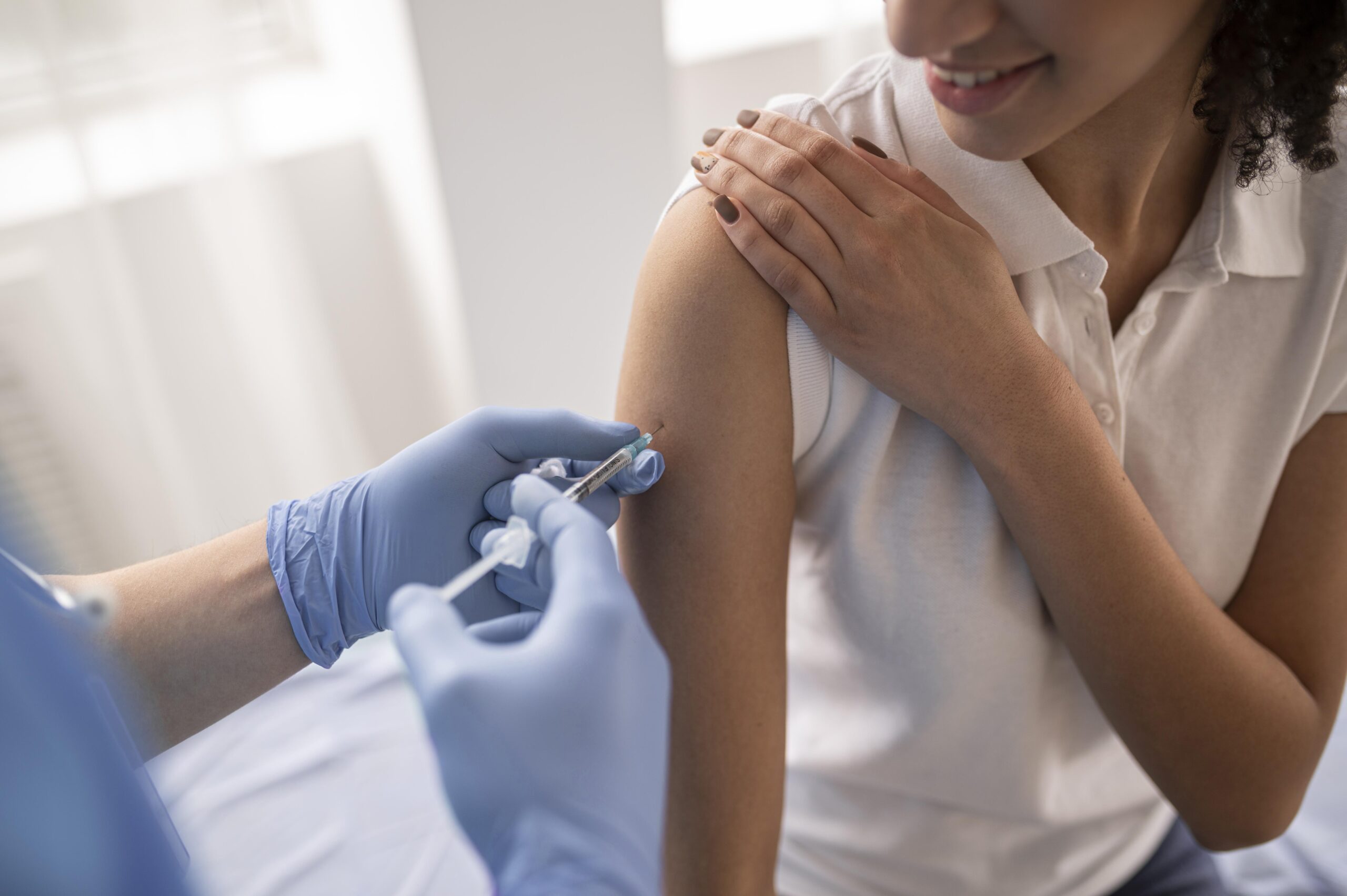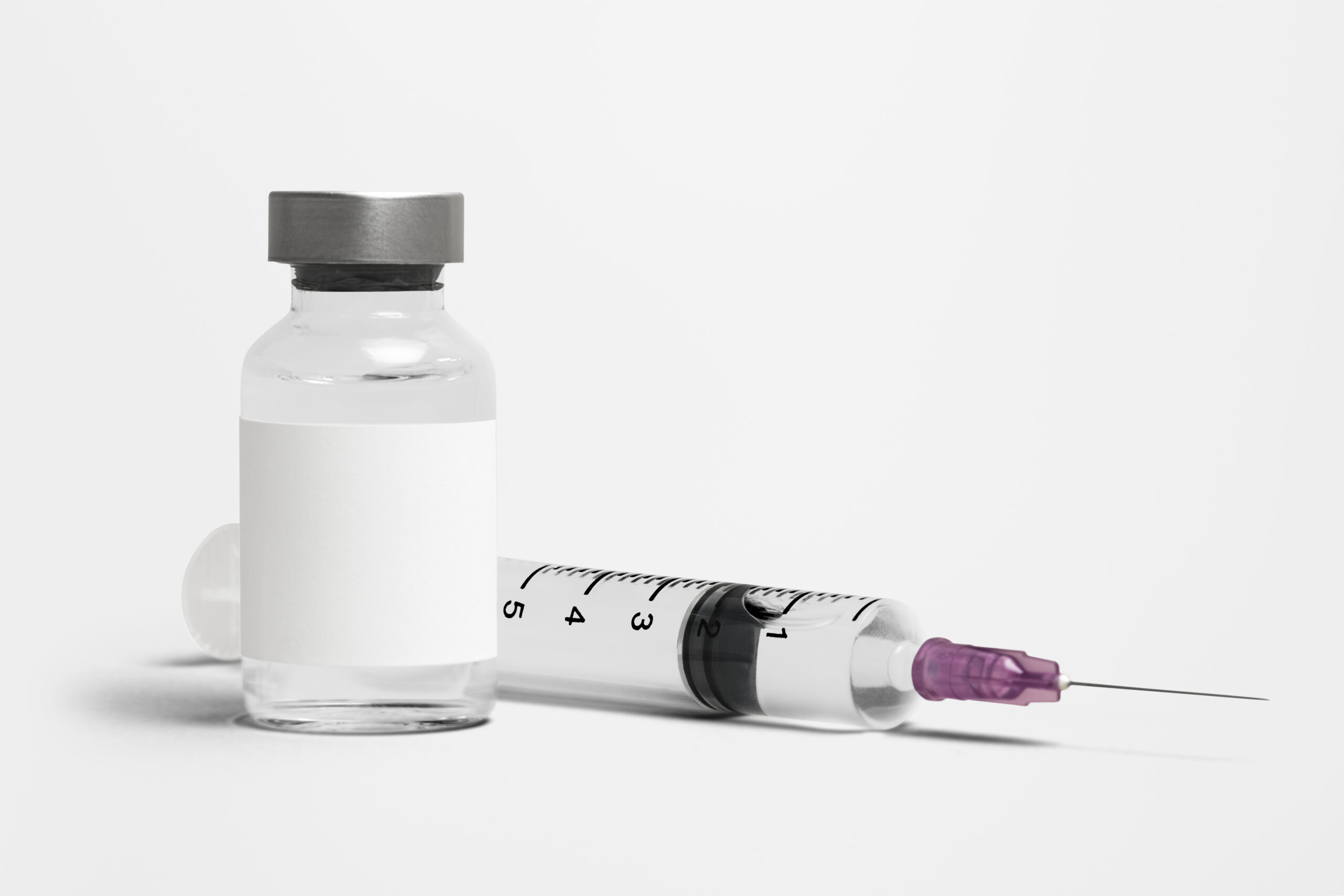They are one of the most notable medical accomplishments. With them, we can prevent many dangerous diseases. The relationship between immunity and contracting infectious diseases was noticed as early as the Middle Ages. They discovered one thing. What would happen if you had hired an infectious disease? You did not suffer from it again. This observation encouraged the doctors of the time. They tried new preparations. These were intended to protect against infection.
The first vaccine was in the eighteenth century. It was by a British doctor, Edward Jenner![]() .
.
A vaccine is a medical preparation. Its task is to generate an immune response. It is comparable to that which the body gets naturally, i.e., during contact with a bacterium or virus. It enables you to gain immunity similar to what you would have after recovering from an illness or infection, but without experiencing the sickness itself.
We give vaccines to protect the body against the intense course of the disease and the complications that are associated with it. Vaccinated people get less severe sickness if they get sick.
The vaccine contains one or more antigens. Monovalent![]() vaccines protect against only one disease. Polyvalent
vaccines protect against only one disease. Polyvalent![]() vaccines protect against various infections.
vaccines protect against various infections.
We obtain antigens from live or killed (inactivated) pathogens, their fragments, or metabolic products. They are also created by genetic engineering.
Due to the antigen used, the vaccines are divided into:
There are also other substances in vaccines, such as adjuvants (aimed at enhancing the body's immune response), preservatives, and stabilizers.
The ones produced so far protect against many illnesses![]() . For example:
. For example:
Existing vaccines are regularly improved. Additionally, new vaccinations are created. For example, those for HIV and malaria. Researchers are also working on cancer vaccines as well as allergy vaccines.

Flu is an infectious disease. The influenza virus causes it. Infection occurs through droplets. Also, it can happen through indirect contact. It occurs through objects and surfaces. The incubation period of the disease is from 1 to 4 days.
After entering the body, the virus multiplies in the epithelial cells of the respiratory system, causing damage and the development of inflammation. Flu symptoms come on suddenly. Belong to them:
Some patients may develop serious complications – pneumonia, meningitis, neurological complications, or exacerbation of existing chronic diseases.
Inactivated vaccines![]() can be administered from 6 months of age and live-vaccines from 24 months to 18 years of age.
can be administered from 6 months of age and live-vaccines from 24 months to 18 years of age.
They are updated every year. The vaccine protects against the disease. It also protects against the development of complications.
HPV![]() is caused by a virus named human papillomavirus. Infection occurs in different ways. Mostly it is through intimate contact with an infected person. It can also happen due to direct contact with skin lesions. Newborns may get infected during childbirth.
is caused by a virus named human papillomavirus. Infection occurs in different ways. Mostly it is through intimate contact with an infected person. It can also happen due to direct contact with skin lesions. Newborns may get infected during childbirth.
It is a virus that infects the epidermis and squamous epithelium basal cells. The virus causes exophytic lesions formation. It happens by intensifying the infected cells' replication. They are on the skin and mucous membranes. Mostly you can find them around the anus and genitalia.
The virus exists in over 100 types. Some of which are oncogenic. They interfere with the DNA of cells. It boosts the risk of particular cancers. The most typical are HPV 16 and 18.
HPV vaccines![]() contain virus-like capsid protein particles. The microbes are highly purified. Vaccines come in 2-, 4- and 9-valent forms, each of which contains the proteins of viruses 16 and 18 and, depending on the type of protein, viruses 6, 11, 31, 33, 45, 52, and 58.
contain virus-like capsid protein particles. The microbes are highly purified. Vaccines come in 2-, 4- and 9-valent forms, each of which contains the proteins of viruses 16 and 18 and, depending on the type of protein, viruses 6, 11, 31, 33, 45, 52, and 58.
The vaccine is for people who are above nine years old. Two doses of the vaccine are for those between 9 and 14 y.o. Individuals who are over 14 years old require three.
Chickenpox![]() is a severe disease. The varicella-zoster virus causes it. Infection occurs by droplet – through direct and indirect contact with the patient.
is a severe disease. The varicella-zoster virus causes it. Infection occurs by droplet – through direct and indirect contact with the patient.
Symptoms of the disease include a characteristic rash. It progresses from a macula. Then goes through a papule and vesicle. It results in drying scab. That can leave scars. In addition to skin lesions, there is itching. Patients complain of fever, muscle aches, and headaches. Children and newborns are at risk. They can experience a severe course of the disease.
After chickenpox, there can be complications in the form of secondary bacterial skin infections, hematological disorders, and inflammation of the kidneys, lungs, or central nervous system.
After getting ill, the virus is still in the organism. It stays dormant.
The vaccine![]() contains live-attenuated viruses. It is given in two doses at least six weeks apart. It is intended for children from 9 months of age and adults.
contains live-attenuated viruses. It is given in two doses at least six weeks apart. It is intended for children from 9 months of age and adults.
This infectious disease is caused by the hepatitis A virus![]() .
.
The source of the pathogen is typically a human. The infection is commonly transmitted through food or drink. However, there are two rare ways of getting infected. The condition can occur through close personal contact. Moreover, it can happen through contact with infected blood. The virus causes acute hepatitis. It is not an etiological factor of chronic inflammation.
Disease symptoms include tiredness, nausea, and vomiting. There may also be stomachache, muscle, and joint pain. What if jaundice occurs? Stool discoloration and urine are darkening. Moreover, the skin may be itchy.
Who are at risk? People over 50 y.o. and those with liver diseases or immunodeficiency. There may be severe inflammation (hyperacute or fulminant). It can lead to liver failure, which can result in death.
The hepatitis A vaccine![]() contains inactivated viruses. It is given in two doses, 6-12 months apart. This vaccine is advised for at-risk individuals. Also, it is great for travelers to high-endemic areas. It is used in post-exposure prophylaxis. Do it within 14 days after contact with the pathogen.
contains inactivated viruses. It is given in two doses, 6-12 months apart. This vaccine is advised for at-risk individuals. Also, it is great for travelers to high-endemic areas. It is used in post-exposure prophylaxis. Do it within 14 days after contact with the pathogen.

Before trips, you often need to prepare yourself. It involves getting vaccinated for specific illnesses. Such action is a significant preventive measure, which is not only to protect the traveler against dangerous diseases. It minimizes the risk of spreading infectious conditions. So it will not happen between different countries.
You should consider booster vaccinations for:
What to do when in doubt about the necessity of vaccination? Seek the opinion of a medical professional. For some diseases, like tetanus, etc., those who were vaccinated, e.g., when they were young should also receive a booster dose. It happens every ten years as antibody levels decline. Ask your doctor if you need it earlier.
The issue of vaccinations before traveling![]() should not be underestimated, even if you are traveling to a neighboring country. A few weeks before departure (e.g., to warm places), visit a travel medicine doctor. The specialist will consider our health, vaccination status, reason for travel and the epidemiological situation of the region. Then they advise on prophylaxis for our specific case. Sometimes vaccinations may only be recommended before traveling to the country, but in some cases they are mandatory.
should not be underestimated, even if you are traveling to a neighboring country. A few weeks before departure (e.g., to warm places), visit a travel medicine doctor. The specialist will consider our health, vaccination status, reason for travel and the epidemiological situation of the region. Then they advise on prophylaxis for our specific case. Sometimes vaccinations may only be recommended before traveling to the country, but in some cases they are mandatory.
The greatest risk of infection with pathogens occurs when traveling to countries with tropical diseases. Particular attention is paid here to endemic areas. It is where the occurrence of contagious diseases is typical. Do not forget about the possibility of an epidemic in the place we are going to. Some countries require mandatory vaccinations.
Some infectious diseases can be protected by vaccination. Others require basic knowledge of infection prevention. All doubts related to going abroad on holiday or for other purposes can be dispelled by a doctor specializing in tropical diseases or travel medicine![]() .
.
Do not wait until the last minute to seek advice. If possible vaccinations should be done in advance. When you should go for a medical consultation? Do it at least 4-8 weeks before the planned trip date.
It is better to vaccinate yourself before traveling abroad. The list of diseases![]() includes:
includes:
Traveling to some countries requires the tourist to undergo the required vaccinations. It is necessary to have confirmation of the vaccination. The lack of the appropriate document will make it impossible to cross the border of a given country. It may also result in forced vaccination at the border or quarantine carried out at the traveler's expense.
What to do if you are planning a trip abroad? Be sure to check the current list of vaccinations for travelers. It is updated, so always make sure it takes into account the WHO![]() and CDC (United States Centers for Disease Control and Prevention) guidelines for a given year. The data updates depend on current outbreaks. It can happen every few months or be changed continuously.
and CDC (United States Centers for Disease Control and Prevention) guidelines for a given year. The data updates depend on current outbreaks. It can happen every few months or be changed continuously.

Before vaccination for a specific infectious disease – the doctor reviews a medical history. Not everyone can be vaccinated. Each preparation may also have slightly different limitations.
The main contraindications![]() to vaccination are invariably diseases with high fever, allergies to any of the vaccine components, or exacerbations of chronic diseases. As an example of yellow fever, we can mention also other possible contraindications to vaccination, including HIV infection, previous transplants, immunodeficiencies, malignant tumors, or certain medications (e.g., immunosuppressants).
to vaccination are invariably diseases with high fever, allergies to any of the vaccine components, or exacerbations of chronic diseases. As an example of yellow fever, we can mention also other possible contraindications to vaccination, including HIV infection, previous transplants, immunodeficiencies, malignant tumors, or certain medications (e.g., immunosuppressants).
It's significant to be cautious if you are pregnant or lactating. Be mindful of a child under six months. Also, be wary of people over 60 years old.
When traveling abroad, you should follow the hygiene rules![]() . Especially in countries at risk of tropical diseases. Be careful when choosing drinks and food
. Especially in countries at risk of tropical diseases. Be careful when choosing drinks and food![]() products. Do not reach for tap water
products. Do not reach for tap water![]() or unreliable sources. Avoid ice cubes added to drinks. Opt only for boiled or bottled water. The risk also appears in the case of dairy products and those bought from street stalls. It is recommended to eat warm dishes immediately after their preparation or serving. Thoroughly wash raw products.
or unreliable sources. Avoid ice cubes added to drinks. Opt only for boiled or bottled water. The risk also appears in the case of dairy products and those bought from street stalls. It is recommended to eat warm dishes immediately after their preparation or serving. Thoroughly wash raw products.
Infectious diseases are transmitted not only by food. In malaria-prone countries, watch out for mosquitoes![]() (prophylactic vaccination against this disease is not used). These insects also transmit yellow fever. Casual sexual contact
(prophylactic vaccination against this disease is not used). These insects also transmit yellow fever. Casual sexual contact![]() , which is the source of HIV, HPV, or hepatitis A, B, or C infections, may also be dangerous.
, which is the source of HIV, HPV, or hepatitis A, B, or C infections, may also be dangerous.
Lack of prudence and not using protection while abroad increases the risk of catching an STD up to three times compared to people who do not practice sex with random partners on the occasion of such trips. It is also conducive to the incidence of gonorrhea, syphilis, trichomoniasis, genital herpes, venereal lymphoma of the groin, granuloma of the groin, or chlamydia.